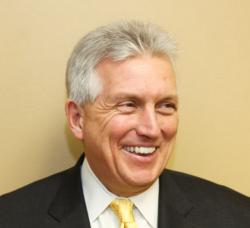Day: September 15, 2017
What Exactly is Leadership …Part 5
Mutually Beneficial More Than Selfishly Prosperous
In the midst of all the turmoil occurring across our country daily, the news about the hurricanes was almost welcome relief. Not that we get relief from the hardship of others; we don’t. Yet, it focused our attention on the very real challenges our neighbors were facing and gave us the opportunity to try to provide some help. Clearly, for more than 2 centuries, Americans have believed it to be mutually beneficial when all of our citizens are safe and secure.
Corporations Care
That belief is shared not only by individual Americans; it is also shared by our corporate citizens who have been increasing donations to help with relief efforts. Consider just a few examples:
- Walgreens committed $200,000 to the American Red Cross for hurricane relief, and their customers can also donate at their stores. They are also donating food items, first aid and medical equipment to the American Red Cross.
- The Kroger Foundation has committed $100,000 to the Houston Food Bank.
- HCA Healthcare will donate $1 million to the American Red Cross. It will also match up to $1 million in employee donations.
- Verizon has pledged $10 million to Harvey relief efforts.
- NFL star J.J. Watt personally raised $30 million for hurricane relief and these are but a few examples.
All of this shows that there is a great deal more to relationships and business and life than making a profit and serving self. In fact, that was exactly the point Charles Dickens made when he wrote about the self-centered Scrooge in A Christmas Carol.
What We Can Learn from Scrooge
Jacob Marley, Scrooge’s deceased business associate, appeared one night in the form of Marley’s Ghost. As Marley explains his earthly regrets, Scrooge challenges him saying, “But you were always a good man of business, Jacob.”
At this, Marley’s Ghost replies, “Business! Mankind was my business. The common welfare was my business; charity, mercy, forbearance, and benevolence were all my business. The dealings of my trade were but a drop of water in the comprehensive ocean of my business!”
In addition to being a beloved and enduring Christmas story, Dickens’ work is also a commentary on business and the social conditions that existed in England around the time of the Industrial Revolution. Through the dialogue between Marley and Scrooge, Dickens points out that business exists for purposes beyond just making money for the owner. There is a responsibility for business leaders to attend also to the human needs of workers and others rather than exploiting or commodifying them. It is only in realizing and acting on the fact that Bob Cratchit is actually a person with a family and needs, that Scrooge finds redemption and becomes a leader. Essentially, Scrooge stops commodifying every aspect of his relationship with Cratchit and starts treating him as a person with value beyond what he can do for Scrooge.
Business Should be Mutually Beneficial
In order for leadership actually to be leadership, it necessitates that relationships between leaders and followers address a set of mutual needs and aspirations, not just those of the leader. Scrooge’s inability to recognize that point made him a selfish, commodifying power wielder instead of a leader. Certainly heads of corporations can drive performance and profits, but that doesn’t make them leaders. As Dickens and many others have expressed; leadership requires the presence of a common and ethical purpose that promises to benefit everyone involved in its pursuit. Beyond that, leadership is also a relationship in which people are respected, and leaders and followers are bound together by and freely give themselves to that common purpose. Simply stated, people are not commodities and they cannot be led effectively by treating them as such.
America at its Best
That’s what is happening in Houston and Florida today. Our citizenry is intervening because they believe people have inherent worth. Individuals and corporations alike are demonstrating this kind of leadership both in fundraising and volunteer efforts over and over and over again, and we are all better off because of it.
